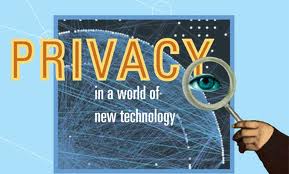What do you do when you have a well-developed personal brand in terms of your attributes and style but a muddy one in terms of your career brand?
John Antonios makes important points in his post, “Personal Branding – A Full-time Lifetime Job!” about the need for authenticity in your personal brand (as opposed to articificial or even opportunitistic). Also important is his the statement that your personal brand CAN change and evolve as you do.
Because "what you do" is part of your personal brand, your brand naturally morphs as your career evolves. You will become known for what you do in your most recent position. Your personal traits such as "inspirational," "passionate,""never gives up" usually remain constant.
But, branding gets more complex when you are in job search mode and want to leave open the options of 2 different career directions.
Many managers and executives in technology - the folks I work with - have 2 career objectives. In terms of preparing their resume and other marketing documents, their personal / career brand will change depending on the skills/experience/talents they want to be emphasizing for the particular job.
Say in one case the individual wants to present herself as a PMO expert and crack large program manager and in another as a VP of IT. She will need two sets of documents.
The tricky part comes when she has to present herself to her various audiences: LinkedIn, blog, Twitter, networking contacts etc. The ideal solution of course would be to do more career and market exploration until you have just one target. But, when that isn't going to work, you need to frame the career part of the personal brand more broadly to encompass both areas: "IT executive with strong PMO and large program management credentials."
When your goals greatly diverge, such as in the case of a serial entrepreneur who has worked in 3 different sectors, I recommend holding off on writing the LinkedIn Profile until your goal is clearer. It doesn't make sense to represent yourself as someone who is a CEO, COO, Sales & Marketing VP, Business Development Executive, Director of IT, and Finance Manager, even though you have played all these roles. You get the picture.
Obviously, a brand is more powerful if there is a clear and logical progression in your career, but very often this is not the case. So your personal / career brand must be considered dynamically and handled in a context-dependent manner. Here's where the attribute "good judgment" comes into play!











